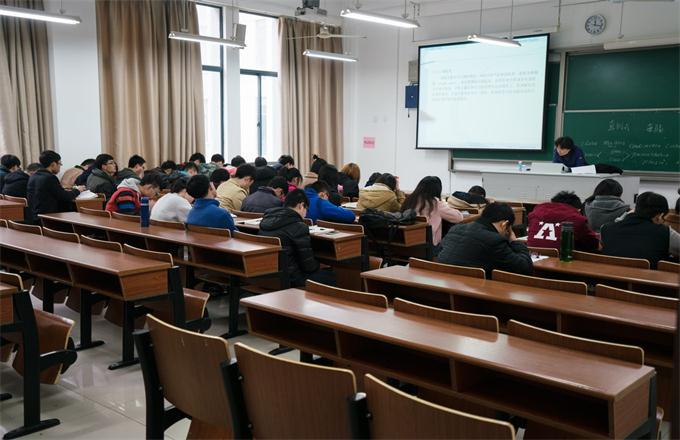For the love and care of elderly parents
I remember seeing a very impressive public service advertisement promoting filial piety. It asked people to draw a 30 by 30 grid on a sheet of paper, with each square representing one month of a person's life (considering the average life span is 75 years), to calculate how many more months or years they are likely to live. Those who work in cities far away from their hometowns can also calculate how much time of their adult life they have spent (or will spend) with their parents.
The ad came back to haunt me after this Spring Festival holiday, a time when many people traveled back home to share the festive joys with their parents and probably have to wait for another year before they can do so again.
With China facing an aging population and accelerating migration from rural to urban areas, and the members of the "one-child" generation becoming the sole breadwinners in their families, taking care of senior citizens is becoming an increasingly tough social challenge both in cities and the countryside.
Since filial piety is an age-old tradition in China, the vast majority of Chinese people agree that visiting parents regularly and providing them with all the necessary help are the responsibility of their grownup children. But the problem is, not all those who have migrated to cities in search of better livelihoods, despite their best efforts, can manage the time or resources to do so. This applies to both white-collar and blue-collar workers.
Indeed, social administration authorities at all levels have taken measures to address this problem. And several local authorities have issued policies requiring people to meet their aged parents' material and spiritual needs. But government regulations alone cannot solve this familial and social conundrum.
Earlier this month, Southwest China's Chongqing municipal government issued the draft law for the protection of senior citizens' rights and interests which requires "supporters and other family members that don't live with the elders" to pay frequent visits to their parents, and call them over the phone or write to them regularly.
However, the draft, despite its good intentions, is not likely to achieve the desired results even if it is implemented in its current form. On the one hand, "frequent" is a vague term that cannot be quantified in real terms. On the other hand, if a person's place of work and hometown are thousands of kilometers away, it is really difficult for him/her to pay "frequent" visits to his/her parents. And even if people make phone calls or write letters regularly, they cannot meet their parents' emotional needs. Written words or those conveyed over the phone are no substitute for physical presence.
That is not to say governments cannot do anything to improve the situation. The authorities' appeal, as in the Chongqing draft law, can help build a more harmonious social environment and encourage people to take better care of their old parents.
But what we urgently need is a "smart" social policy that will help people to spend more time with their parents and meet their various needs.
In this regard, the recently approved Fujian provincial ordinance for the protection of senior citizens' rights and interests is a good example. The ordinance says employees are entitled to 10 days of paid leave a year if they belong to single-child families and their parents are above 60 years of age, so that they can visit them regularly and meet their spiritual and other needs.
The Fujian ordinance not only attempts to solve the practical problem that many people face in taking care of their aged parents, but also protects such people's rights and interests. Local authorities should learn from such policies and take more positive measures to safeguard the rights and interests of senior citizens.
The author is a writer with China Daily. wangyiqing@chinadaily.com.cn
(China Daily 02/18/2017 page5)




















